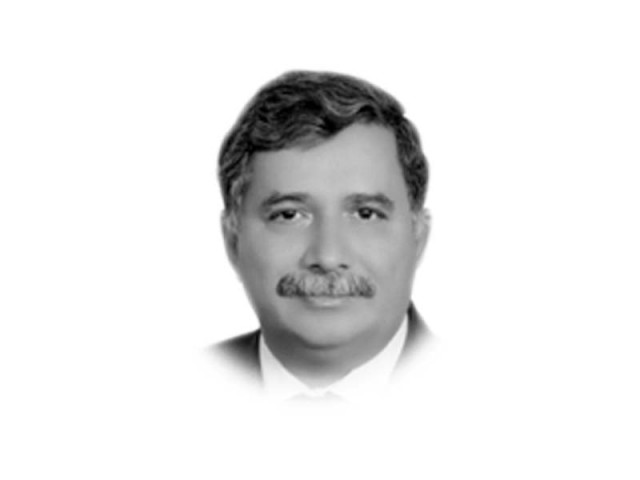OIC conference: sobering effect
Even if some help is extended, it may not resolve the main problems of the economy and the governance

On 19th December, Pakistan hosted the Organisation of Islamic Cooperation (OIC) conference of the foreign ministers in Islamabad, which has generated new hopes for the Afghan people in times of adversity. Holding the conference is indeed a leap forward for bringing into focus the humanitarian crisis that has gripped Afghanistan.
Since the Taliban’s takeover, the country has been in isolation. The freezing of the Afghan Central Bank reserves worth ten billion dollars has had a crippling effect on the banking system, retarding the whole economic system. Short of cash, the banking systems are almost dysfunctional. Capitally starved, the country is unable to set aside enough amount for social development and social service as well as salaries. International trade has hit rock bottom, as it is not possible without a sound banking system.
The crunch of the crisis is being faced by the people. According to reports, millions of people are without enough food. Malnutrition may be the fate of millions of children. If food does not reach in time, millions of children below the age of five may die. Millions of women are anaemic due to iron deficiency. Droughts in parts of the country have further compounded the problem.
Despite concerns expressed by organisations such as the United Nations High Commission for Refugees (UNHCR), World Food Program, Unicef and members of the international community, no substantial help has been extended — perhaps due to the Taliban’s reluctance for an inclusive government, assurance on human rights, and, in particular, capacity to act against the terrorist outfit. But, more so, it appears that the US and her allies are still not sure about the credibility of the Afghan government for acting against terrorist organisations and ensuring that its soil is not being used against the US and her allies.
Against this backdrop, the issue of recognition is of utmost importance to gain legitimacy. Only after gaining legitimacy, new vistas of development and progress can be opened, and crises can be dealt with comprehensively.
The conference, of course, has provided an opportunity to the Taliban to understand the psyche of the participants, while providing a chance to others to evaluate the Taliban’s perspective. This intermingling may bring some sobering effect on the Taliban, resulting in flexibility.
The decisions of the OIC will give some face-saving to the government before their rank and file, as they can argue that those were an outcome of the deliberations or ijma (consensus) of the Ummah.
Although the OIC has announced setting up a humanitarian fund to be operated by the Islamic Development Bank (IDB) to help avert the humanitarian and economic crises in Afghanistan, expecting too much is far from reality. Even if some help is extended, it may relieve some of the sufferings of the helpless, but not resolve the main problems of the economy and the governance. The grim reality is that Afghanistan is not the only country facing such a crisis. Many African countries have been going through the same trauma for the past several years. A question arises: have the problems of other countries been resolved by doling out aid?
According to reports, 1.8 million children (more than 80%) in Lebanon are facing multidimensional poverty and the risk of being forced into child labour or child marriage to help their families make ends meet.
The UNHCR estimates that more than 85,000 people from Cameroon have fled into neighbouring Chad recently while at least 15,000 Cameroonians have been displaced within the country.
Some African countries are confronted with intense humanitarian crises, with nations struggling against high hunger rates, civil unrest, natural disasters and public health threats. Africa is known as the hub of the world’s hunger with two out of three people impacted by food insecurity.
We must be mindful that Afghanistan’s woes cannot be simply addressed by highlighting this aspect only. Something more must be done. While the foreign minister of Afghanistan is constantly trying to look outward to prick the conscience of other nations, appealing for aid on humanitarian grounds, he forgets that the international community also expects of them to adhere to the Doha Agreement and fulfil their commitments. Therefore, there is a need to look inwards and set things in order to allay the fears of the world community.
For this, they have to come out of isolation to run the government on the concept of good governance. The first is to ensure an inclusive government and secondly to initiate action against all terrorist groups with no hedge and haw. Therefore, the bottom line is to understand the importance of combating terrorism in Afghanistan and ensuring that the territory of Afghanistan is not used as a safe haven by any terrorist group or organisation. The Taliban must take concrete steps against all terrorist organisations viz, Al-Qaeda, Daesh and its affiliates, East Turkestan Islamic Movement and others.
Published in The Express Tribune, December 22nd, 2021.
Like Opinion & Editorial on Facebook, follow @ETOpEd on Twitter to receive all updates on all our daily pieces.













COMMENTS
Comments are moderated and generally will be posted if they are on-topic and not abusive.
For more information, please see our Comments FAQ